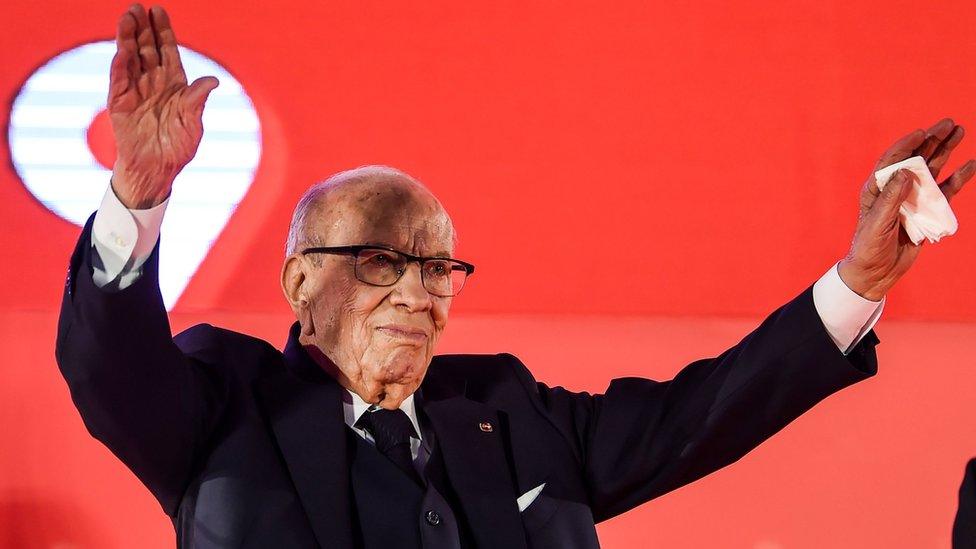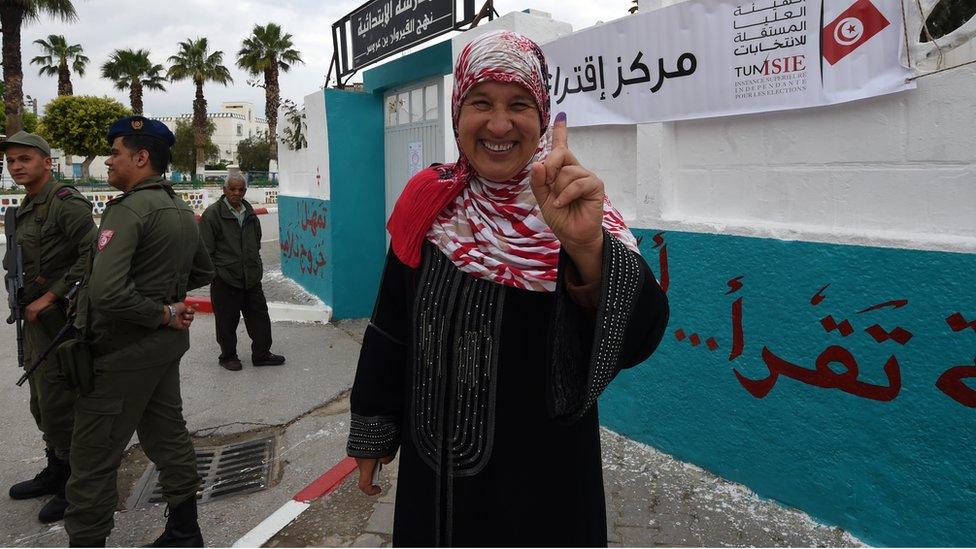Obituary: Tunisia's President Beji Caid Essebsi
- Published

Tunisia's Beji Caid Essebsi, who has died at the age of 92, was the world's oldest sitting president.
He was prominent in politics for more than half a century, and was seen by his supporters as a safe pair of hands who maintained Tunisia's strong secular tradition - a reputation his government has lived up to by announcing earlier this month a ban on women wearing the niqab, which covers the entire face apart from the eyes, in government offices, citing security reasons.
He served under two autocratic rulers before becoming the North African state's first freely elected president in 2014.
For a man way beyond retirement age, Essebsi - often described as affable and jovial - boasted a surprising amount of energy and political ambition to win a run-off vote at the age of 88.
In his opponents' eyes, Essebsi represented a subtle return of the old guard, and an undermining of the gains of the revolution which overthrew long-serving ruler Zine al-Abidine Ben Ali.
Essebsi was among the founding fathers of the Tunisian republic formed after independence from France in 1956, and served as interior minister in then-President Habib Bourguiba's government.

Tunisia has been largely stable since the 2011 Arab uprising
It was credited with wide-ranging social and economic reforms, but was also accused of having established a repressive regime which cracked down on the opposition and guaranteed domination by a single party, the Rally for Constitutional Democracy (RCD), until the 2011 revolution.
Essebsi's critics said he had overseen the establishment of a police state during his term as interior minister, and carried some responsibility for the repression and torture seen in Tunisia during the Bourguiba era.
But his supporters said he was a liberal who failed to persuade Bourguiba to embrace political pluralism.
As president, Essebsi largely maintained stability in Tunisia.
It has been spared much of the violence seen elsewhere in North Africa and the Middle East since the 2011 Arab uprising, although it has been the target of militant Islamists over the years.
Some saw Essebsi's government as too authoritarian in its response to security challenges, and too ready to sweep the crimes of the past under the carpet.

Beji Caid Essebsi
Born 29 November 1926
Studied law in Paris
Interior minister under Habib Bourguiba, Tunisia's first president after independence
Speaker of parliament under ousted President Zine al-Abidine Ben Ali
Interim prime minister in 2011 after the uprising
Founder of secular-leaning Nidaa Tounes party in 2012
Wins presidential election in 2014
Dies 25 July 2019